Why Factory Electrical Installation Matters
Understanding Manufacturing Electrical Requirements
Key Features and Benefits of Proper Electrical Installations
Practical Tips for Choosing a Commercial Electrician
Pre-Installation Preparation: What You Need to Know
Local Regulations, Best Practices, and Compliance in Melbourne
Maintenance, Upgrades, and Troubleshooting
Factory Electrical Installation Melbourne: Manufacturing Requirements
When you run a manufacturing business in Melbourne, one of the most critical considerations is ensuring that your factory’s electrical installation is safe, compliant, and efficient. Whether you’re setting up a new manufacturing plant or upgrading an existing facility, proper electrical installation is the backbone that keeps your operations running smoothly. In this comprehensive guide, we’ll explore everything business owners need to know about factory electrical installation in Melbourne—from meeting manufacturing electrical requirements to finding the right commercial electrician and ensuring compliance with local codes.
Our goal is to make this topic approachable for busy small business owners in suburbs such as North Melbourne and Fairfield. We’ll break down the complexities of industrial electrical services into practical, straightforward tips and advice. So grab a cup of coffee and let’s dive into the world of electrical systems designed specifically for factories and manufacturing plants in Melbourne.
Why Factory Electrical Installation Matters
Factory electrical installation is far more than simply laying down wires and installing outlets. For manufacturing businesses, the electrical system is the lifeblood of operations. Here are some top reasons why ensuring robust electrical infrastructure in your factory is crucial:
- Operational Efficiency: Modern manufacturing processes depend on precise electrical controls and reliable power distribution. Any downtime or instability can have a direct, negative impact on productivity.
- Safety: Faulty or subpar electrical installations can lead to safety hazards, including fires, equipment failures, and worker injuries. Keeping your facility compliant with safety standards is a top priority.
- Regulatory Compliance: In Melbourne, strict regulations and codes govern industrial electrical installations. Adhering to these not only safeguards your business but also helps you avoid hefty fines and legal issues.
- Cost Savings: Efficient electrical systems reduce energy consumption, which in turn lowers your operational costs. An investment in quality installation now can save you significant repair or upgrade expenses in the future.
- Future Expansion: As your business grows, so too will your electrical needs. A well-planned electrical infrastructure ensures that you’re well-equipped to handle future technological advancements and increased power demands.
Understanding the importance of factory electrical installation helps you appreciate why engaging experienced electrical contractors for factories is a smart business investment.
Understanding Manufacturing Electrical Requirements
When planning or upgrading a factory’s electrical installation in Melbourne, you must consider a host of factors specific to manufacturing plants. Here, we detail the essential manufacturing electrical requirements.
Industrial Electrical Services and the Unique Needs of Manufacturing
Manufacturing plants often have heavier electrical loads than typical commercial properties. Specific industrial electrical services include:
- Factory Electrical Wiring: Tailored wiring solutions designed to handle high loads and resist factory wear and tear.
- Power Distribution in Factories: Engineering solutions that manage and distribute power evenly throughout the facility to prevent overloads.
- 3-Phase Power Installation for Factories: A common requirement for running large machinery and industrial equipment.
- Machine Wiring for Factories: Custom wiring for complex machinery that demands precision and durability.
Electrical Engineering for Factories
Electrical engineering for factories involves detailed planning and design. This process includes assessing the current and future needs of the manufacturing process, determining the optimal routing for cables, and ensuring that every system component meets industrial design standards.
Safety in Factory Electrical Installation
Safety cannot be overstated. Factory electrical safety involves:
- Electrical Safety in Factories: Adhering to strict safety protocols to protect workers from electrical hazards.
- Factory Electrical Compliance: Meeting local and national codes ensures your facility is safe and legally compliant.
- Electrical Code Compliance for Factories: Following rigorous standards such as those laid out by Standards Australia and the local council requirements.
Understanding these manufacturing electrical requirements is crucial because even minor oversights can lead to significant operational interruptions or safety hazards.
Key Features and Benefits of Proper Electrical Installations
Investing in a high-quality electrical system for your factory offers numerous features and benefits. Below, we outline some core advantages that come with a well-planned factory electrical installation.
Safety First
- Reduced Risks: Modern electrical systems incorporate safety features that minimize the risk of electrical fires, short circuits, and other hazards.
- Compliance Assurance: Ensuring systems are built to code means you’re protected under local, state, and national regulations.
Enhanced Operational Efficiency
- Optimised Power Distribution: An effective layout of your electrical infrastructure ensures that power is consistently available throughout the plant, reducing downtimes.
- Energy Efficiency: State-of-the-art electrical installations include energy-efficient systems that help reduce energy consumption and lower costs.
Reliability and Longevity
- Durable Materials and Design: High-quality materials withstand the harsh conditions of an industrial environment, from dust to extreme temperatures.
- Future-Proofing: A scalable electrical system allows for easy upgrades as your business grows, making your infrastructure future-proof.
Cost Savings in the Long Run
- Minimised Maintenance: A modern electrical installation reduces the need for frequent repairs, which translates to cost savings over time.
- Reduced Energy Bills: Advanced control systems and energy-efficient designs help keep operational costs down.
Compliance and Legal Security
- Avoid Legal Issues: Proper electrical installation ensures your facility meets all regulatory requirements, safeguarding you from potential legal issues.
- Peace of Mind: Knowing that your factory is compliant with Melbourne’s rigorous electrical standards allows you to focus on what you do best—running your business.
Practical Tips for Choosing a Commercial Electrician
Finding the right commercial electrician in Melbourne who specializes in factory electrical installation can seem daunting. Here are practical tips to ease the process:
1. Look for Specialisation in Industrial and Commercial Installations
- Experience Matters: Choose a commercial electrician Melbourne who has extensive experience in factory electrical installations. They should be well-versed in industrial electrical design, wiring, and installation standards.
- Specialised Services: Ensure they offer the range of services you need, from electrical panel installations to factory automation electrical systems.
2. Verify Qualifications and Certifications
- Licensing: Confirm that the electrician is fully licensed and registered with the relevant state authorities.
- Certifications: Look for certifications in industrial electrical safety protocols and adherence to new industry standards.
- Insurance: Verify that they have comprehensive insurance, protecting your business in case of accidents.
3. Check References and Past Projects
- Portfolio: Ask to see previous factory installations they have completed. A portfolio of completed projects is a strong indicator of quality and reliability.
- Testimonials: Look for reviews or testimonials from other manufacturing business owners in Melbourne to gauge their reliability and expertise.
4. Evaluate Their Understanding of Local Regulations
- Local Expertise: The ideal contractor will have deep knowledge of Melbourne’s local codes, standards, and best practices for industrial electrical installations.
- Compliance History: Ask about their experience with electrical safety in factories and ensuring factory electrical compliance.
5. Request a Detailed Quote and Timeline
- Transparency: A reputable electrician will provide a detailed quote outlining all aspects of the job—from initial design through final inspection.
- Project Management: Ensure they are prepared to manage the project from start to finish, including planning, execution, and post-installation service.
Pre-Installation Preparation: What You Need to Know
Before you embark on a factory electrical installation project, there are several steps you should take to prepare. These steps not only ensure the job runs smoothly but also help in managing costs and timelines.
Conduct a Thorough Needs Assessment
- Review Production Requirements: Understand the power demands of your machinery and manufacturing processes. Each piece of equipment may have specific requirements that need to be accounted for.
- Future Growth: Factor in potential business expansions or additional machinery that might be installed in the future.
- Energy Efficiency Goals: Consider whether energy-efficient solutions, like LED lighting installation or advanced control panels, could benefit your operations.
Design and Layout Considerations
- Detailed Blueprints: Work with your chosen electrical contractor to develop detailed blueprints. These should show the arrangement of electrical systems, including power distribution panels, wiring routes, and emergency systems.
- Factory Workflow Integration: The electrical layout should support your manufacturing workflow. This ensures that the placement of electrical systems does not obstruct production lines or create hazardous workspaces.
Coordination with Other Installations
- HVAC and Lighting: Consider how the electrical system integrates with your HVAC (heating, ventilation, and air conditioning) and factory lighting installation. Proper coordination can enhance energy efficiency and compliance.
- Automation Systems: If your factory uses automation electrical systems, the electrical installation must be designed to accommodate these technologies seamlessly.
Scheduling and Downtime Planning
- Minimise Disruption: Plan the installation during a period of low production to minimise disruptions.
- Phased Installation: If necessary, work out a phased plan that allows portions of your facility to remain operational while upgrades are implemented.
Local Regulations, Best Practices, and Compliance in Melbourne
Melbourne’s manufacturing landscape is subject to specific electrical standards and codes that ensure both safety and efficiency. Understanding these local regulations will help you remain compliant and avoid costly legal issues.
Key Local Regulations for Factory Electrical Installations
- Melbourne Building Codes: Any electrical installation in Melbourne must meet the requirements outlined in the local building codes. These codes cover everything from wiring methods to the installation of emergency shut-offs.
- Standards Australia: Many industrial electrical installations adhere to Standards Australia’s guidelines, which address everything from electrical design to safety. Ensuring compliance with these standards is essential.
- Electrical Supply Authority Requirements: Local councils and state authorities regularly inspect industrial electrical systems. Be sure your contractor is informed about the latest regulations regarding factory electrical safety protocols and upgrades.
Best Practices for Industrial Electrical Installation
- Regular Inspections: Schedule periodic electrical inspections to ensure that your installation remains compliant and safe. This also helps catch any issues before they become major problems.
- Proactive Maintenance: Establish a maintenance schedule for factory electrical infrastructure to avoid unexpected downtime. This includes regular checks of power distribution systems, control panels, and wiring integrity.
- Documentation: Keep thorough records of all installation work, maintenance schedules, and inspections. This documentation can be invaluable during regulatory audits or if issues arise.
Tips for Ensuring Electrical Compliance
- Work with Local Experts: Engage local electrical contractors who are familiar with Melbourne’s industrial electrical design and local compliance issues.
- Stay Updated: Regulations can change, so regularly review local and national electrical codes. Subscribe to industry newsletters or join local business groups that share updates on compliance and standards.
- Emergency Preparedness: Equip your factory with emergency electrical services, such as backup generators and rapid response maintenance, to handle unexpected power outages or faults.
Maintenance, Upgrades, and Troubleshooting
A successful factory electrical installation isn’t a one-time project—it requires ongoing maintenance, periodic upgrades, and the ability to troubleshoot issues as they arise. Let’s break down what you need to consider:
Regular Maintenance for Safety and Efficiency
- Factory Electrical Maintenance Schedule: Develop a regular maintenance schedule. Routine inspections and servicing can prevent small issues from escalating into major, costly failures.
- Dedicated Maintenance Teams: Engage your commercial electrician Melbourne for periodic checks and necessary repairs. Their expertise in industrial electrical troubleshooting can keep your production running smoothly.
- Energy Efficiency Audits: Regular audits of your electrical system can identify opportunities for energy-efficient upgrades, which can reduce your overall operational costs.
Upgrading Your Electrical Systems Over Time
- Adapting to New Technology: As manufacturing processes evolve, your electrical systems will need to adapt. Whether it’s integrating better automation electrical systems or upgrading your factory lighting installation, staying abreast of new technologies is essential.
- Factory Electrical Renovation: In older manufacturing plants, electrical upgrades can improve safety, reliability, and efficiency. Modernisation might include switching to LED lighting, installing advanced control systems, or overhauling outdated wiring.
- Consultation and Planning: Engage with expert electrical consultants or project managers who specialise in industrial electrical commissioning and panel installations. They can help plan and execute upgrades that minimise disruption to your business.
Troubleshooting Common Issues
- Electrical Panel Problems: Regular inspection of electrical panels can help prevent issues such as overloads or corrosion.
- Faulty Wiring and Connections: Poor wiring can lead to dangerous conditions. Prompt repairs by a trusted electrician can safeguard your facility.
- Power Distribution Imbalance: Uneven power distribution may cause equipment failures. A thorough assessment by an industrial electrician can help balance loads across your facility.
Conclusion and Final Thoughts
Ensuring a robust and compliant electrical installation in your factory is paramount for safe, efficient, and cost-effective manufacturing operations in Melbourne. From understanding complex industrial electrical services and adhering to manufacturing electrical requirements, to choosing the right commercial electrician and preparing thoroughly for installation, every step is critical.
Investing in quality electrical infrastructure not only improves operational efficiency and safety but also helps future-proof your business against expansions and technological advancements. By working with experienced electrical contractors who know the ins and outs of Melbourne’s unique industrial regulations, you can focus on growing your business with peace of mind.
Remember that factory electrical installation is a collaborative effort. Engage local experts, communicate your needs clearly, and stay updated on local regulations—this proactive approach will help ensure that your factory’s electrical system supports your operational goals for many years to come.
Whether you’re starting a new manufacturing venture or upgrading your existing facility, the right electrical installation is the foundation of reliable and efficient production. With careful planning, regular maintenance, and ongoing innovation, you can keep your manufacturing plant running safely and effectively, giving you more time to focus on what really matters: growing your business in Melbourne’s competitive industrial landscape.
If you have any questions or need further advice on industrial electrical installation, don’t hesitate to reach out to a trusted commercial electrician in Melbourne. Investing in expert guidance today can ensure a brighter, safer, and more efficient future for your factory.
By following these practical tips and understanding the importance of comprehensive factory electrical installation, you can ensure that your manufacturing plant in Melbourne meets all required standards while operating at peak efficiency. Make the smart investment now—because a strong electrical infrastructure is not just about power; it’s about powering your business’s success.
We hope you found this guide helpful. If you have any insights or experiences to share regarding your factory electrical installation journey, please feel free to leave a comment below. Your feedback not only helps us improve but also assists other manufacturing business owners in making informed decisions.
Thank you for reading, and we wish you every success in building a safe, efficient, and future-ready manufacturing facility in Melbourne!
Remember, whether you’re looking for factory power installation, electrical upgrades for factories, or industrial wiring standards guidance, always choose professionals who understand the nuances of Melbourne’s regulations and manufacturing electrical requirements. Happy electrifying!
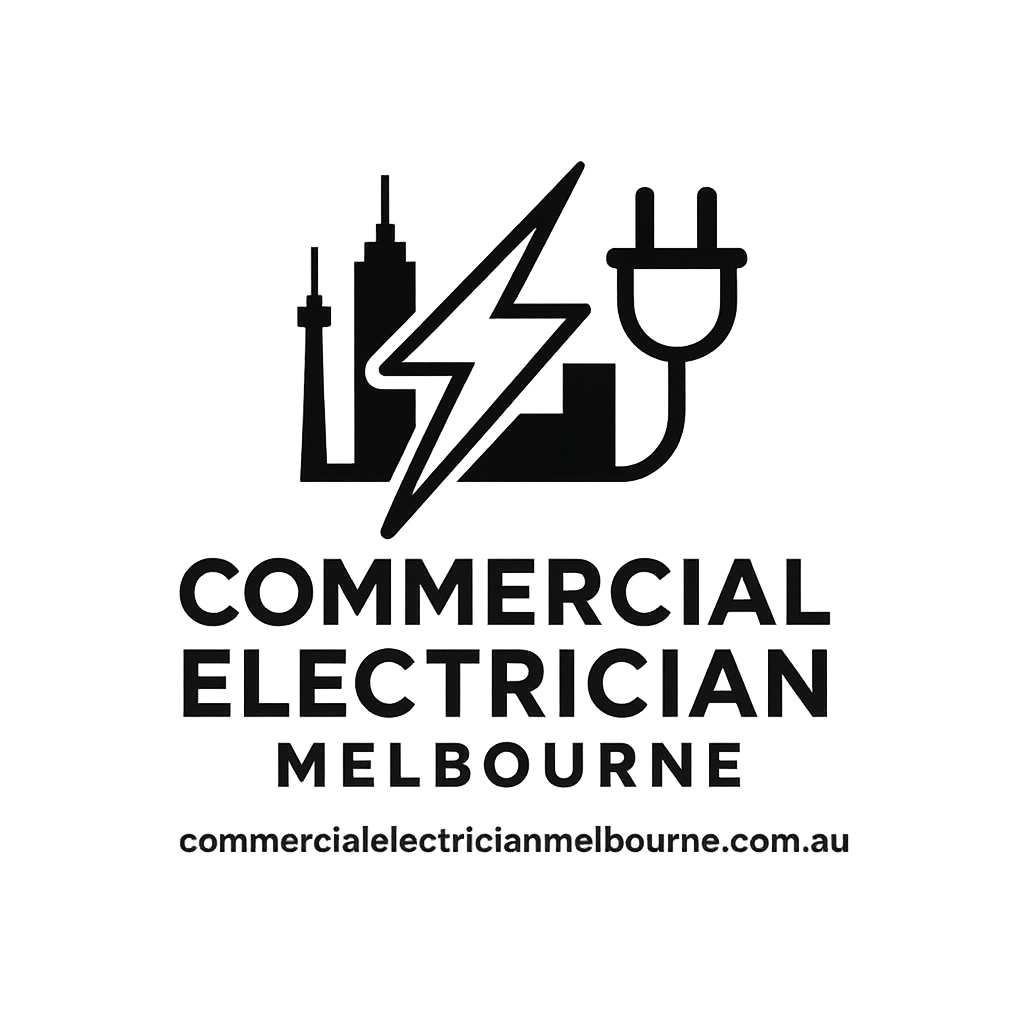
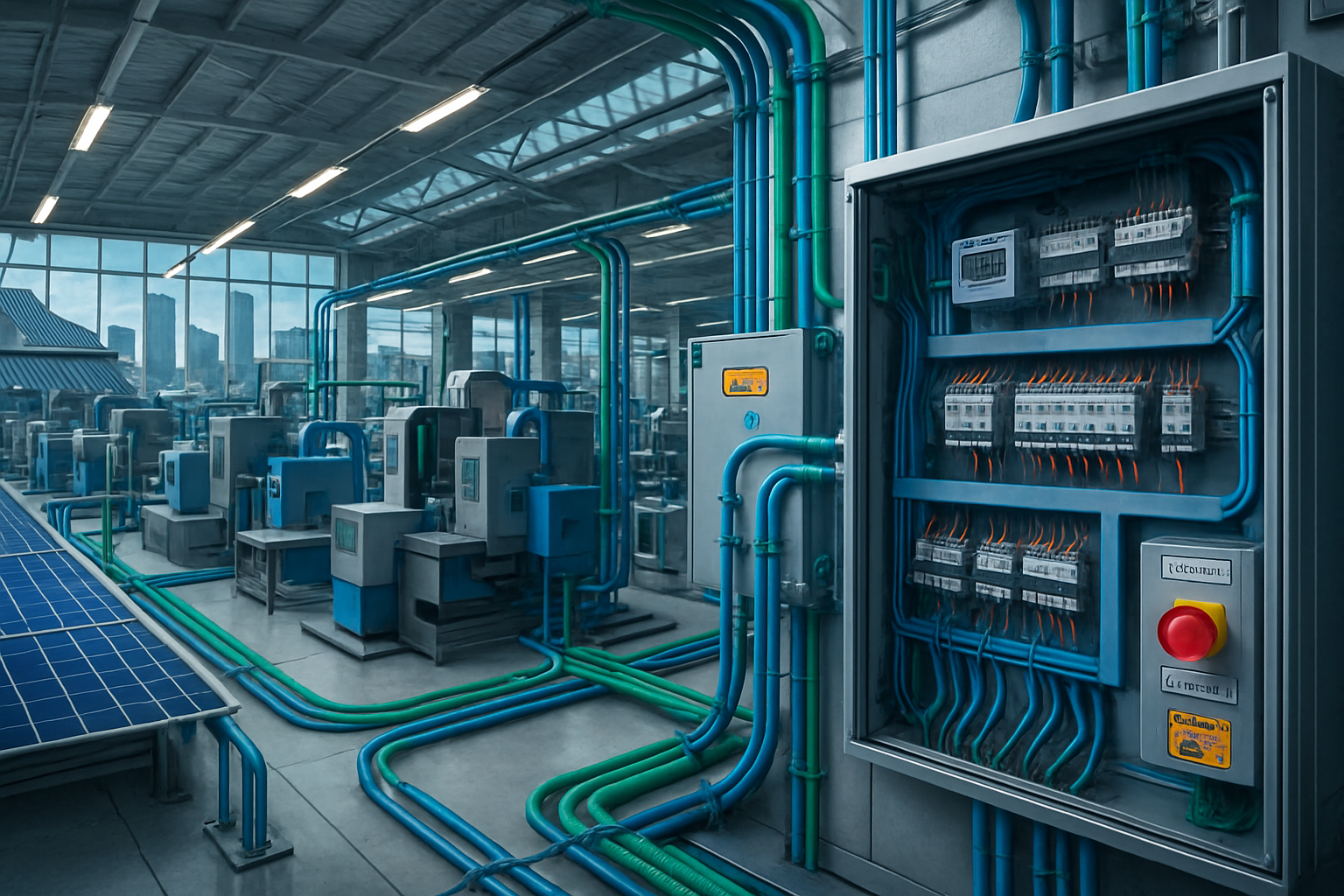
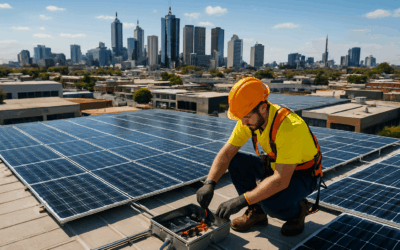
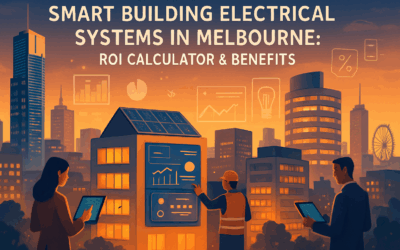
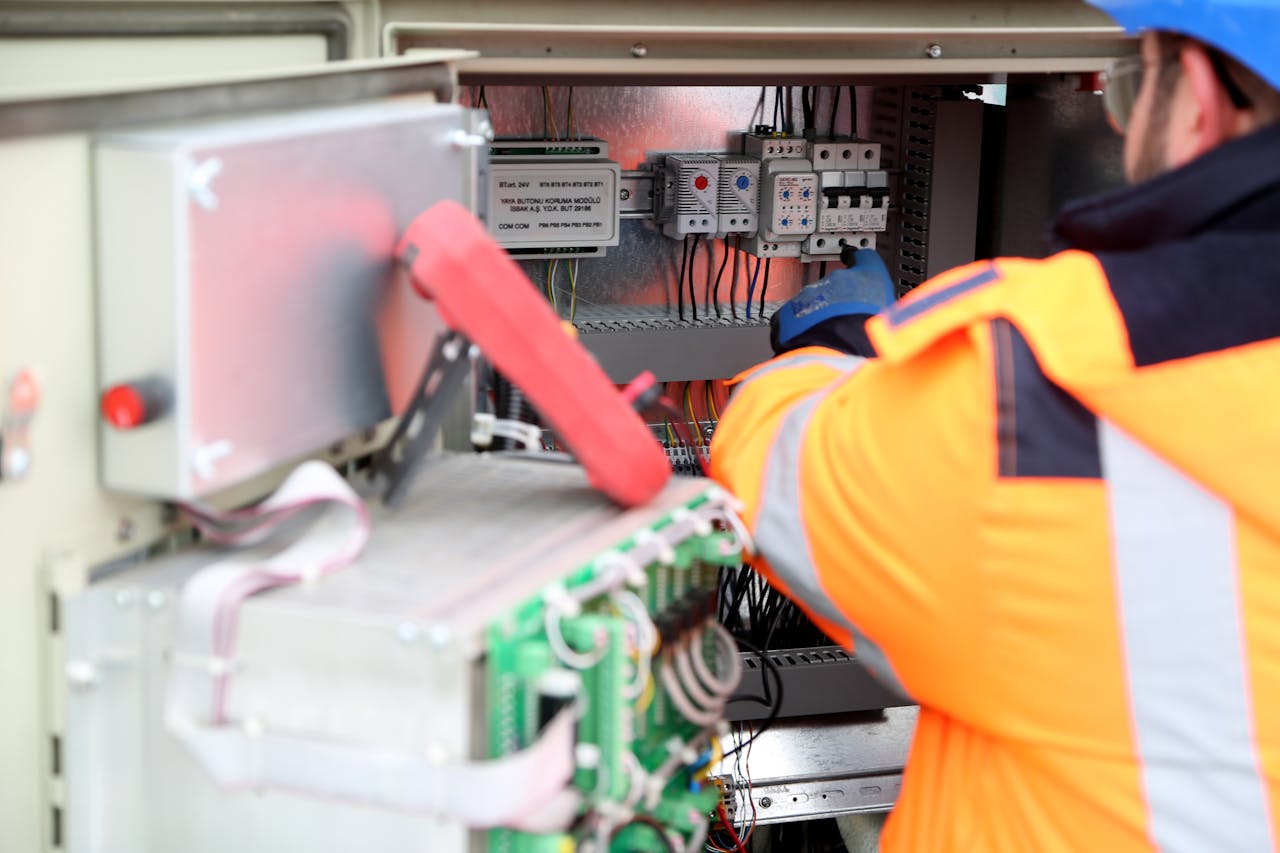
0 Comments